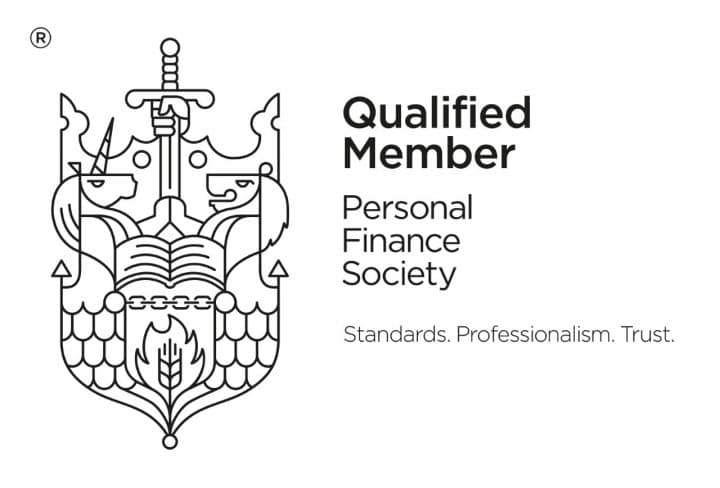Navigating the world of personal finance can be daunting, particularly when it comes to managing your pension, investments, mortgages, and other financial products. That’s where a financial adviser comes in, offering professional advice to help you make the most of your money. But how much does a financial adviser cost? In this article, we’ll explore the different types of financial advisers, the fees involved, and how to find the right one for you.
Types of Financial Advisers
There are several types of financial advisers, each with their own charging structures and areas of expertise.
-
Independent Financial Adviser (IFA): An IFA can offer advice on a wide range of financial products and services, such as pension advice, investment advice, and mortgage advice. They’re not tied to any specific provider, which means they can recommend the best options for your unique situation.
-
Restricted Financial Adviser: A restricted adviser can only offer advice on a limited range of financial products or providers. This might be suitable if you need specific advice on a particular product, like a pension or ISA.
-
Robo-Advisers: These are online platforms that provide automated financial advice using algorithms. They typically have lower fees but may not offer the personalized guidance that an IFA or restricted adviser can provide.
Financial Advice Cost Components
There are three main components to consider when it comes to the cost of financial advice:
-
Initial Consultation Fees: Some advisers charge for the first meeting, while others offer a free initial consultation. This is an opportunity to discuss your financial goals and assess whether the adviser is a good fit for your needs. At All Aspects Financial, we never charge for a first meeting as we want to ensure we can help and add value.
-
Advice Fees: The financial adviser fees cover the cost of the advice you receive, which may be based on an hourly rate, flat fee, or percentage of your investment. Some advisers may offer a fixed fee for specific services, like pension advice or inheritance tax planning.
-
Ongoing Charges: If you choose to work with a financial adviser on an ongoing basis, you’ll likely incur ongoing charges for services such as portfolio management and regular financial reviews. These fees can be based on a percentage of your investment, a fixed fee, or an hourly rate.
How Much Does a Financial Adviser Cost?
The cost of a financial adviser varies depending on their expertise, location, and the type of advice you need. On average, an independent financial adviser (IFA) may charge around 3% of the value of the investment reviewed, but some may charge more or less depending on their experience and qualifications. For advice on mortgages and protection, the initial charge is likely to be either free (as they receive a commission) or around £500.
Ongoing charges for portfolio management and other services typically range from 0.5% to 1% of your investment per year. If you have a £100,000 investment portfolio, this means you could pay between £500 and £1,000 in ongoing fees each year. This is dependent on the size of your investments held under management.
Free Initial Consultation
Many financial advisers offer a free initial consultation to discuss your financial goals and explore how they can help. This can be a valuable opportunity to assess the adviser’s expertise, communication style, and fee structure before committing to their services. To find an adviser who offers a free initial consultation, consult the Financial Conduct Authority’s register or use the Money Advice Service’s adviser directory.
Ongoing Advice and Fees
Ongoing advice is crucial for staying on track with your financial planning journey and adapting your strategy as your circumstances change. When considering ongoing charges, it’s essential to weigh the cost against the value you’ll receive from the adviser’s services. A good financial adviser will help you grow your money, minimize risks, and save on taxes, potentially more than offsetting the cost of their fees.
The cost of ongoing advice is typically between 0.5%-1.5% dependent on the size of the portfolio under management. It is essential to ensure they offer a valuable service, including regular contact, reviews annually and access for ad hoc meetings throughout the year where required.
Paying for Financial Advice
Before committing to a financial adviser, it’s crucial to consider how their fees will impact your overall financial plan. Here are some tips for budgeting for financial advice costs:
-
Assess the value for money: Consider the potential benefits of professional advice, such as improved investment returns, tax savings, and the peace of mind that comes from having a well-structured financial plan.
-
Consider their qualifications, experience, and the quality of their advice. Advice is a relationship business, so you need to ensure you like and trust the adviser you will be working with into the future.
-
Use tax-efficient options: Some pension schemes and ISAs allow you to withdraw up to £500 towards the cost of retirement or investment advice without incurring tax penalties.
How to Get Free Financial Advice
If you’re on a tight budget or don’t have the time to commit to a full financial planning process, there are options for obtaining free financial guidance:
-
Money Advice Service: This government-backed service provides free, impartial financial guidance on a wide range of topics, including pensions, investments, and mortgages.
-
Pension Wise: This free service is available to those aged 50 or over with a defined contribution pension. It provides guidance on pension options and can help you make informed decisions about your pension pot.
-
Financial product providers: Some banks, building societies, and investment platforms offer free financial guidance or tools to help you manage your money more effectively. Keep in mind that this advice may be limited to their specific products and services.
While free advice can be helpful, it may not be as comprehensive or tailored to your individual circumstances as the advice from a paid financial adviser.
Finding the Right Financial Adviser for You
To find a financial adviser who can help you achieve your financial goals, consider the following steps:
-
Determine the advice you need: Assess your financial situation and identify the areas where you need professional guidance, such as pension planning, investment advice, or mortgage support.
-
Research potential advisers: Use resources like the Financial Conduct Authority’s register and the Money Advice Service’s adviser directory to find qualified advisers in your area. Look for reviews and testimonials from previous clients.
-
Compare fees and services: Request fee quotes and details of services from several advisers, comparing their costs and the scope of their advice.
-
Interview potential advisers: Schedule consultations with your top choices, using the opportunity to discuss your financial goals and assess their expertise and communication style.
-
Review your decision regularly: As your financial circumstances change, reassess your choice of adviser to ensure they continue to meet your needs and offer value for money.
Conclusion
The cost of hiring a financial adviser can vary depending on their expertise, location, and the type of advice you need. While fees are an important consideration, it’s crucial to weigh the potential benefits of professional advice against the costs. By taking the time to research, compare, and interview potential advisers, you can find the right financial professional to help you navigate your financial journey and make the most of your investments, pensions, and other financial products.






